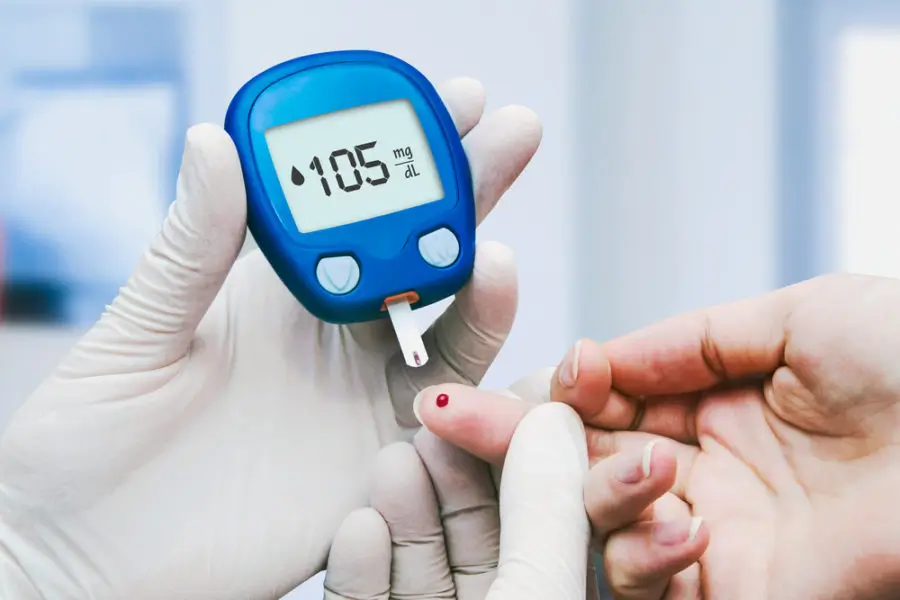Diabetes is one of the most prevalent chronic conditions worldwide, affecting millions of people. Identifying the early signs is crucial for a timely diagnosis, helping to prevent severe long-term complications. This comprehensive guide will cover the early signs of diabetes, highlighting essential information to help you recognize symptoms and seek medical help.

What is Diabetes?
Before discussing the signs, it’s essential to understand what diabetes is. Diabetes is a condition that occurs when blood glucose levels are consistently elevated. This can happen for two primary reasons:
- The body does not produce enough insulin (type 1 diabetes).
- The body does not use insulin effectively (type 2 diabetes).
Regardless of the type, recognizing the symptoms early can make all the difference.
Key Early Signs of Diabetes
1. Excessive Thirst (Polydipsia)
One of the most noticeable early signs of diabetes is constant thirst. This occurs because excess glucose in the blood forces the kidneys to work harder to filter and absorb the sugar. When the kidneys cannot keep up, the excess glucose is excreted through urine, leading to dehydration. As a result, you feel persistently thirsty, even after drinking large amounts of fluids.
2. Frequent Urination (Polyuria)
Polyuria is closely related to polydipsia. When blood glucose levels are high, the kidneys produce more urine to eliminate the excess sugar. This cycle can lead to frequent trips to the bathroom, especially at night.
3. Extreme Hunger (Polyphagia)
People with diabetes may also experience extreme hunger, even after eating. This happens because, without sufficient insulin or its proper action, the body’s cells do not receive enough energy from glucose. As a result, the body “demands” more food to try to meet this energy need.
4. Unexplained Weight Loss
Losing weight without an apparent reason can be another sign of diabetes, especially type 1. This happens because the body starts burning fat and muscle as an alternative energy source when it cannot properly use glucose.
5. Fatigue and Weakness
Constant tiredness is another common symptom. When cells cannot access glucose, the primary source of energy, you feel exhausted, even after a good night’s sleep or consuming food.
6. Blurred Vision
Blurred vision can be one of the early signs of diabetes. High blood sugar levels cause changes in the eye’s fluids, affecting your ability to focus.
7. Slow Healing and Frequent Infections
Wounds that take longer to heal or recurring infections can also indicate diabetes. Excess glucose can weaken the immune system and impair blood flow, making recovery more difficult.
- Why is Early Recognition Important?
- Untreated diabetes can lead to severe complications, such as:
- Heart problems: Coronary artery disease and high blood pressure.
- Nerve damage (neuropathy): Pain, tingling, or loss of sensation, especially in the feet.
- Kidney disease: Chronic kidney failure.
- Eye complications: Diabetic retinopathy and blindness.
Amputations: Resulting from severe infections and poor healing.
Risk Factors for Diabetes
In addition to recognizing the signs, it’s essential to know the risk factors. Some include:
- Family history: Having close relatives with diabetes increases your risk.
- Age: Type 2 diabetes is more common in people over 45.
- Body weight: Overweight and obesity are significant risk factors.
- Sedentary lifestyle: Lack of regular physical activity contributes to the development of type 2 diabetes.
- Pre-existing medical conditions: Such as high blood pressure, high cholesterol, or polycystic ovary syndrome (PCOS).
What to Do If You Notice the Signs?
If you notice any of these symptoms, it’s crucial to seek medical help. A healthcare professional may order tests to confirm the diagnosis, such as:
- Fasting blood glucose test: Measures blood sugar levels after a period of fasting.
- Hemoglobin A1C test: Assesses average blood sugar levels over the past 2-3 months.
- Oral glucose tolerance test: Measures how the body handles glucose after consuming a sugary solution.
How to Prevent Diabetes?
While type 1 diabetes cannot be prevented, you can reduce the risk of type 2 diabetes with some lifestyle changes:
- Adopt a healthy diet: Prioritize fruits, vegetables, whole grains, and lean proteins.
- Exercise regularly: Engage in moderate activity for at least 150 minutes a week.
- Maintain a healthy weight: Keeping a healthy weight can significantly reduce your risk.
- Monitor your health regularly: Have routine check-ups to detect changes in blood sugar levels.
Conclusion
The early signs of diabetes may be subtle, but recognizing them is the first step toward a timely diagnosis and effective treatment. If you notice constant thirst, extreme hunger, unexplained weight loss, or any other symptoms mentioned, consult a doctor immediately. With proper care, diabetes can be managed, allowing you to live a healthy life.
Remember: taking care of your health is an investment in your future. Stay alert to the signs, understand the risk factors, and take steps to prevent or manage diabetes.
10 All-Natural Products to Support Healthy Blood Sugar Levels
Managing blood sugar levels naturally is easier with the help of powerful, research-backed supplements. We’ve compiled a list of top-rated products designed to promote balanced glucose levels, boost energy, and support overall health. Click the links below to explore these highly effective options and take the first step toward better health!
1. Sugar Defender
- Why Choose It?
SugarDefender’s BLOOD SUGAR FORMULA supports healthy glucose levels while boosting all-day energy and improving mental clarity. - Key Benefit: Enhances energy and sharpens cognitive functions.
- Learn More: Click here to discover how SugarDefender can help you.
2. Cellucare
- Why Choose It?
Designed to help balance blood sugar and manage weight, Cellucare is a go-to solution for reaching your health goals from the comfort of your home. - Key Benefit: Supports blood sugar regulation and weight management.
- Learn More: Click here to explore Cellucare’s benefits.
3. Gluco Ally
- Why Choose It?
This supplement contains natural ingredients known for their effectiveness in maintaining healthy blood sugar levels. - Key Benefit: Provides gentle yet effective glucose support.
- Learn More: Click here to see how Gluco Ally works for you.
4. Gluco Freeze
- Why Choose It?
Targeting the root causes of high blood sugar, Gluco Freeze is a groundbreaking natural supplement. - Key Benefit: Focuses on addressing underlying imbalances.
- Learn More: Click here to learn more about Gluco Freeze.
5. Glucotil
- Why Choose It?
Powered by a Japanese remedy for type 2 diabetes, Glucotil helps balance blood sugar while boosting energy and mental clarity. - Key Benefit: Combines traditional remedies with modern science.
- Learn More: Click here to explore Glucotil’s unique benefits.
6. Blood Sugar blaster
- Why Choose It?
A scientifically designed formula, Blood Sugar Baster supports the pancreas, liver, and metabolic functions, offering holistic health benefits. - Key Benefit: Comprehensive support for multiple systems.
- Learn More: Click here to find out more about Blood Sugar Baster
7. GlucoTrust
- Why Choose It?
A simple and effective way to maintain healthy blood sugar levels, GlucoTrust is a popular choice for daily support. - Key Benefit: Reliable and easy to integrate into your routine.
- Learn More: Click here to discover GlucoTrust’s advantages.
8. Free Sugar Pro
- Why Choose It?
This product not only regulates blood sugar levels but also supports natural weight loss for a healthier lifestyle. - Key Benefit: Dual benefits for glucose control and weight management.
- Learn More: Click here to learn more about Free Sugar Pro.
9. GlucoBerry™
- Why Choose It?
Formulated using Ivy League research and doctor-approved, GlucoBerry™ delivers exceptional results for blood sugar health. - Key Benefit: Advanced, research-driven formula for glucose support.
- Learn More: Click here to see why GlucoBerry™ is right for you.
10. Gluco Shield Pro
Why Choose It?
With a blend of natural ingredients and stress-relieving herbs, Gluco Shield Pro offers comprehensive support for blood sugar levels and overall wellness.
Key Benefit: Combines blood sugar regulation with stress management.
Learn More: Click here to explore Gluco Shield Pro.
Take Control of Your Health Today!
These all-natural supplements are designed to help you manage blood sugar levels effectively while improving overall well-being. Don’t wait to take charge of your health—click the links above to learn more about each product and find the perfect fit for your needs!

This post is for general informational purposes only. It should never be considered a substitute for advice provided by a physician or other qualified healthcare professional. Always seek the advice of your physician or other qualified health provider with questions you may have regarding your health or medical condition. Some of the links above are affiliate links, which means I earn a small commission when you purchase through them, at no extra cost to you. I don’t align myself with any brand that I don’t love, use and trust 100%.
1. What are the most common early signs of diabetes?
The most common signs include excessive thirst (polydipsia), frequent urination (polyuria), extreme hunger (polyphagia), unexplained weight loss, constant fatigue, blurred vision, and slow-healing wounds.
2. Are these symptoms different for type 1 and type 2 diabetes?
While some symptoms are similar, such as thirst and fatigue, unexplained weight loss is more frequent in type 1 diabetes. Type 2 diabetes tends to develop more gradually, and in some cases, symptoms may be almost unnoticeable at first.
3. Is blurred vision always a sign of diabetes?
Not necessarily. While blurred vision is a common symptom of diabetes, it can also be caused by other issues, such as myopia or dry eyes. It’s important to consult a doctor to determine the cause.
4. Is it possible to have diabetes without showing symptoms?
Yes, especially in the case of type 2 diabetes. Many people only discover the condition during routine exams or when they already experience complications, such as vision or circulation problems.
5. How can I know if I have diabetes?
The diagnosis must be made by a doctor. The most common tests include fasting blood glucose, hemoglobin A1C, and the oral glucose tolerance test.
6. Can these symptoms be caused by other conditions?
Yes, many of the early symptoms of diabetes, such as fatigue, thirst, and blurred vision, can be associated with other conditions. It’s important to undergo medical tests to confirm the diagnosis.
7. Can diabetes be prevented?
Type 1 diabetes cannot be prevented, as it is an autoimmune condition. However, type 2 diabetes can be prevented or delayed with lifestyle changes, such as a healthy diet, regular exercise, and maintaining a healthy weight.
8. If I have a family history of diabetes, should I be more concerned about the symptoms?
Yes, family history increases the risk of diabetes. If you have close relatives with the condition, it’s important to monitor early signs and have regular check-ups.
9. Can children show early signs of diabetes?
Yes, especially type 1 diabetes, which is more common in children and adolescents. Parents should watch for symptoms such as excessive thirst, frequent urination, and unexplained weight loss.
10. What should I do if I notice these symptoms?
Seek medical attention immediately. Early diagnosis allows for timely treatment and helps prevent serious complications in the future.

Dr. Sarah Miller is widely recognized as an influential leader in the healthcare field, with a career marked by excellence, innovation, and dedication to improving human well-being. Combining exceptional academic knowledge, clinical experience, and a deep commitment to research, she has become a reference in her specialty.






